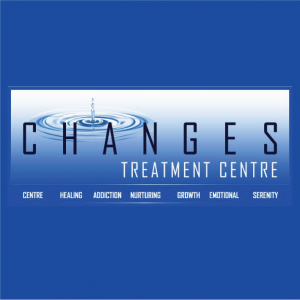Guilt and shame are frequently experienced by those struggling with addiction. These emotions can be challenging to cope with and can perpetuate the cycle of addictive behaviour. Overcoming addiction requires addressing these emotions and finding ways to cope with them.
Unfortunately, substance abuse, whether drugs or alcohol, is a pervasive problem in South Africa. Many South Africans know someone who struggles with addiction, and it is crucial to encourage those individuals to seek assistance and support.
The Changes Treatment Centre advises that it is never too early to seek help and support for addiction. By seeking help sooner rather than later, individuals and families can break the cycle of addiction and avoid the devastating consequences that often accompany it.
The Impact Addiction Has on Lives
Addiction can have a far-reaching impact on the lives of those around the individual struggling with it. It affects their physical and mental health and relationships with family, friends and peers.
It can be difficult to overcome, but seeking help and support can make a significant difference. According to The Director of Changes Treatment Centre, Sheryl Rahme, to address the problem, people need to speak openly about addiction.
“The first thing a lot of families do, and I don’t think it’s just Muslim families or traditional families, we don’t want to talk about it as it is. We use cliches, we minimise, and we don’t talk about it to extended family, our friends and our loved ones, and that’s one of the first ways that we address guilt and shame. Find a way to start telling somebody, this is what I’m going through. When they don’t react negatively, it almost lifts the shame for that period of time. If somebody says I can relate, I’ve also gone through that. That’s where the shame gets addressed.”
Speaking openly about addiction and getting support from people who have gone through similar situations has proven to have a positive effect. By doing so, it reduces the stigma and shame associated with addiction and can help with the healing process.
SMread| Shack Dwellers Movement Organises Peaceful Marches to Demand Provision of Basic Human Rights Services by the Government
How to Handle the Homecoming After Treatment
Returning home from an addiction treatment centre can be a sensitive time for the individual and their family. Rahme suggested that family members and caregivers should be careful not to become overbearing and give the person space to adjust to being home. Therefore, it is essential to handle homecoming with care to avoid potential relapses.
“It should be low-key. They’re coming home terrified, they are scared, and they have apprehension about what to expect … I often tell parents to clean out their bedrooms with their permission so that they come home. There’s no paraphernalia left behind but also not invasive.”
Rahme advises that parents or caregivers should not make idle promises or threats. They need to follow through with what they say. They should avoid using judgemental language and speak to the behaviour, not the person.
In addition, the opposite of what they think is usually the truth, so whatever apprehension they might feel, she encourages parents to challenge it with the opposite.
Moreover, all parties need to get themselves educated on the disease of addiction. Find out everything there is to know and continuously attend support groups and post-treatment centres, which will significantly assist on the road to recovery.
